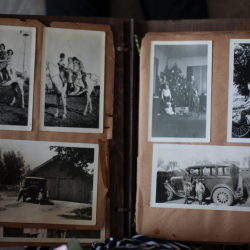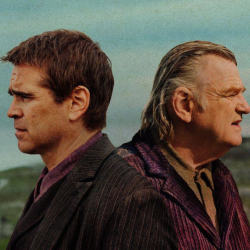What mark will you leave on the world?
Lots of us will have considered this at some level. And then turned right back to our Insta feed, or the next Call of Duty mission. Because we humans are not naturally good at the idea of legacy. In fact, we’re not particularly good at considering the future at all. We live in the present, seeking instant gratification. If we want something, we want it now. Why do we fail to consider our future selves? Well, there’s pretty strong evidence that the concept just seems trivial compared to the here and now. Psychologists call it the present preference bias.
Pay now or pay later?
One study into present preference comes from Liam Delaney and Leonhard Lades at the University of Stirling, in 2015. Researchers recruited 144 students and staff. Each was given a hypothetical purchase scenario — they were asked to decide between making an immediate smaller payment (£9-15), or a larger, future one (£16). Results showed that rather than pay £13 immediately, the majority (60%) chose to pay £16 in a month’s time. To give this a bit of real world context, that would equate to a massive 23% monthly interest rate, or an APR of 1099%.
This is solid evidence that we are strongly influenced by avoiding pain in the present, even if this means more pain in the future. This goes a long way to explain the draw of short-term pleasures despite their potential for long-term pain — like a second doughnut, or one too many glasses of good wine.
We don’t worry about tomorrow
This bias can be a headache for anyone in the business of persuading people to do something unpleasant in the present — like parting with money for a pension. We’re just not naturally inclined to save, because we neglect our future selves.
But the present preference bias also offers a solution: move the pain of parting with cash to some later date. A great example of the bias in action is the Save More Tomorrow (SMarT) initiative, which was designed by Nobel laureate Richard Thaler and UCLA professor Shlomo Benartzi.
For research into the scheme, they recruited a group of employees who were not saving as much as they’d ideally like in their pension, but were uncomfortable with a sudden, much larger salary sacrifice.
Participants who joined the SMarT plan agreed to save just a little right now (3% of their pay) but committed to increasing this proportion each time they had a pay rise. After 4 years, those in the scheme were comfortably saving over 13% of their pay.
So it seems that now doesn’t feel like the right time to part with a large chunk of earnings. But if it’s happening at some point in the future, well, that’s okay then. We can cross that bridge when we get to it. The scheme was so effective at helping people save for retirement that it’s been widely adopted in the US and is now written into law as part of the Pension Protection Act of 2006.
Mañana, mañana
Another study that shows how little we consider the future was conducted by Anna Breman, from the Stockholm School of Economics, and a large Swedish charity called Diakonia In 2006. The experiment involved 1,134 regular monthly donors, split into two groups. One group was asked to increase their donations, starting immediately. The second group was asked if they’d agree to increase their donations — but they would not be debited the extra amount for two months.
On average, the donations from the delayed givers was 32% higher than the ‘give more now’ group — a significant difference.
What does this mean for your legacy?
The present preference bias essentially means you’re naturally inclined towards seeking a comfortable life right now, rather than funnelling your energy into your future.
So, what can brands do? Well, being aware of this tendency is the first step towards success. Most brands behave in a Canute-like manner, trying to overturn human behaviour and persuade us of the importance of the future. But this is often futile. Far better to recognise present preference bias and work with it. Just like Save More Tomorrow, think about ways of delaying the pain of action and push the effort or costs into the future. That way, you’re working with human nature, rather than against it.
Editor’s note: Richard’s second book on applying behavioural science to marketing, The Illusion of Choice is available to order on Amazon now.
Featured image: Tatiana Saveedra / Diversifylens































